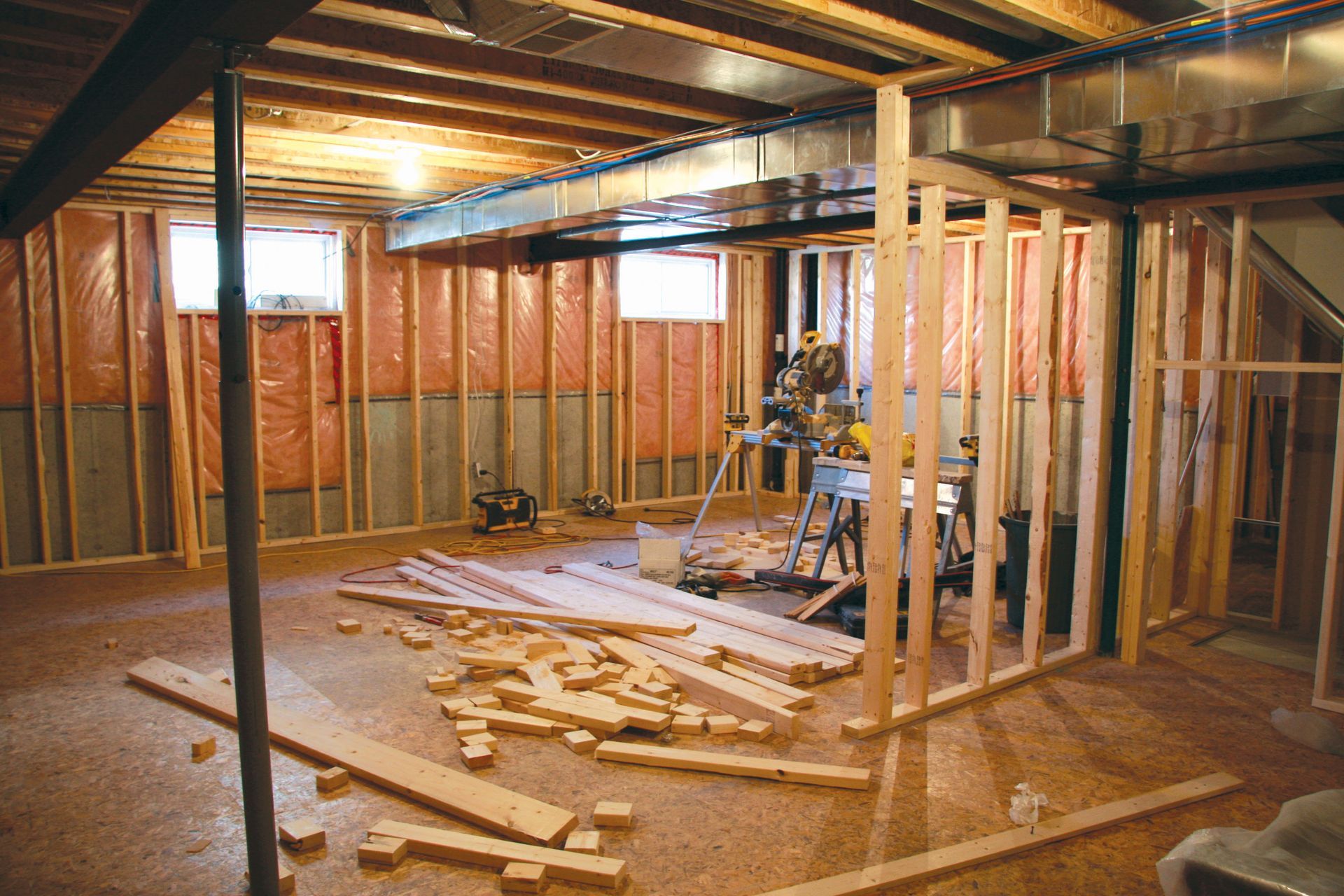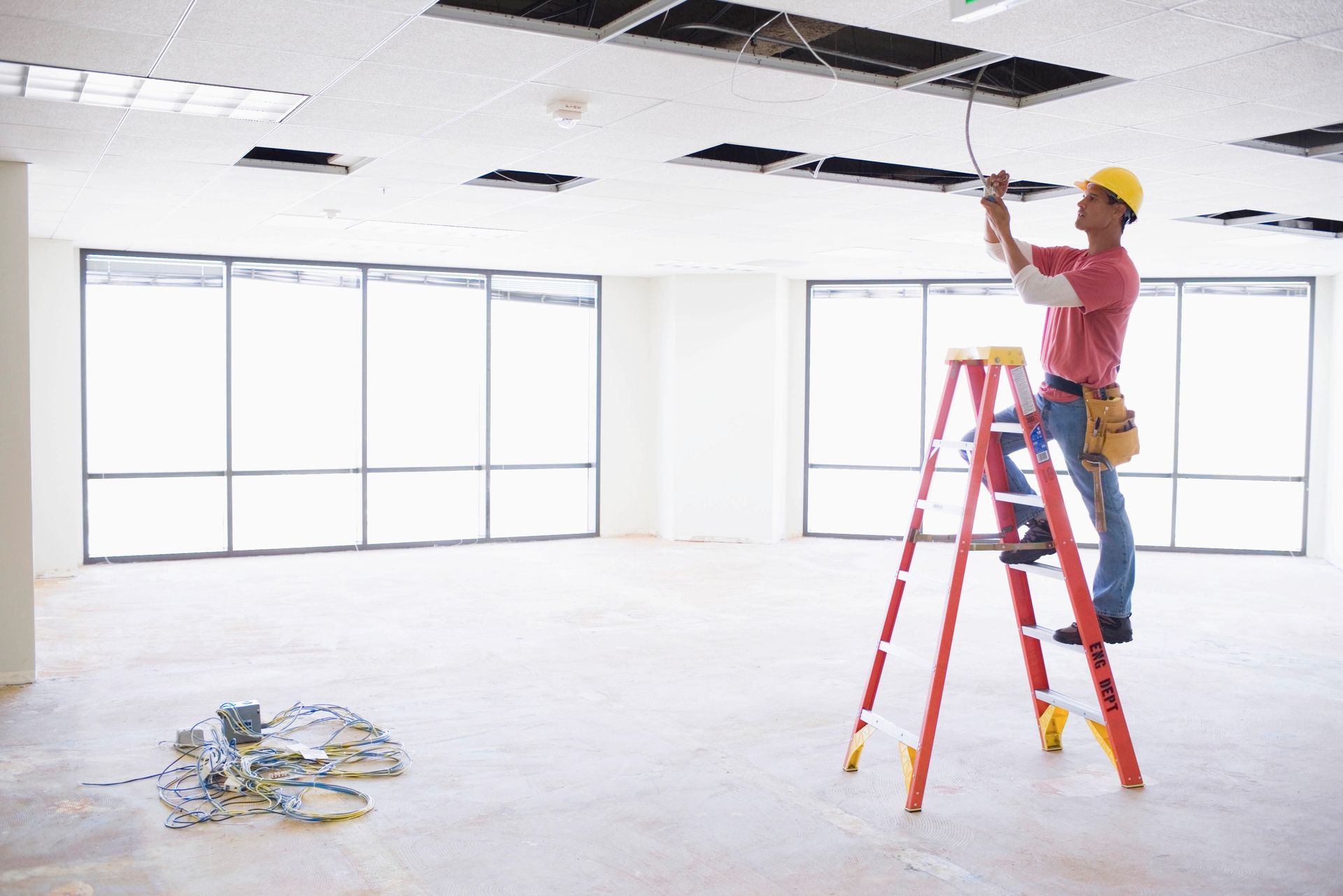How to Choose the Right Local General Contractor for Your Project
Finding the right local general contractor can be a daunting task, but making the right choice is crucial for the success of any project. This guide provides key considerations and steps to help you navigate the process efficiently.
Understanding Your Project Needs
Define the Scope of Work
Before reaching out to potential contractors, it's important to clearly define the scope of work. An accurate scope ensures that both you and your contractor are aligned on what's to be achieved. By listing specific tasks and areas for renovation, you minimize the risk of misunderstandings. A vague project description can lead to variation orders and disputed costs. Clear definitions at the onset lay the groundwork for a smooth operation.
Determine Your Budget
Budgeting is a crucial step that dictates the scale and quality of your project. Establish a realistic budget by researching average costs in your region and for specific upgrades. Note that approximately 35% of homeowners encounter unforeseen expenses during renovations, often due to hidden structural issues or outdated systems, according to Anderson Engineering. Be financially prepared for such events to avoid disruption. Create a contingency plan that accounts for potential overruns.
Establish a Timeline
A well-established timeline helps ensure that the project flows smoothly without unnecessary delays. Determine when you hope to start and complete your renovation. Discussing your timeline early on with contractors allows them to assess their capability to meet your deadlines. Factor in potential permitting delays, supply chain interruptions, or other unexpected hitches. A realistic timeline minimizes stress and aligns expectations.
Researching Potential Contractors
Seek Recommendations and Referrals
Begin researching for a potential local general contractor by tapping into your networks for recommendations. Personal referrals often provide an honest assessment of a contractor’s strengths and weaknesses. Trustworthy contractors typically leave a trail of satisfied clients, which you can follow. Listen to experiences from friends and family without neglecting professional referrals from industry experts. A wealth of personal anecdotes can provide insights beyond online reviews.
Utilize Online Resources and Reviews
Online platforms like Angie’s List, Houzz, or Yelp are invaluable for preliminary research. Reviews from past clients can provide background on contractor reliability and project outcomes. Approach online reviews with a discerning eye, differentiating between consistent trends and one-off discrepancies. Explore platforms that verify client interactions to enhance review credibility. The internet is a vast resource, offering snapshots of contractor reputations.
Review Past Projects and Portfolios
Requesting portfolios from contractors provides a visual testament to their craftsmanship. By viewing past projects, you can gauge aesthetic compatibility and assess quality. Portfolios reveal the range of a contractor’s skills, from simple to complex projects. Analyzing their scope indicates whether they’re suited to your project's demands. Quality representations instill confidence, so ensure their past work is in line with your standards.
Evaluating Contractor Experience and Expertise
Assess Relevant Experience
It's crucial to pinpoint contractors with experience pertinent to your specific project needs. Experience in similar projects indicates familiarity with potential challenges and expectations. Focus not on years of experience alone, but relevance to the task at hand. Comprehensive experience translates to proficient handling from inception to completion. Ensure their experience aligns with both technical and creative dimensions.
Examine Specialized Skills
Examine if the local general contractor has specialized skills or certifications in unique areas relevant to your project. Specialized certifications or training imply increased competencies in those fields. This is particularly important for projects needing technologies or materials outside standard practice. Specializations might include sustainable building practices, smart home integrations, or historical restorations. Aligning a contractor’s skill set with your needs maximizes project success.
Evaluate Quality of Past Work
Insist on viewing completed projects to assess their finishing quality. Speak to past clients to obtain their perspective on quality, durability, and overall satisfaction. Quality evaluation goes beyond appearances, considering aspects like structural robustness and adherence to original timelines. Often, photos can be deceiving, highlighting the importance of firsthand inspections. Quality reflects a contractor's commitment to excellence.
Conducting Interviews and Site Visits
Prepare a List of Questions
Organize your queries to comprehensively gauge a contractor's suitability during interviews. Cover a spectrum including scheduling, budgeting, and problem-solving capabilities. Tailor questions to address your project's particular complexities or concerns. A well-prepared list helps streamline the interview, making it both thorough and efficient. Preparedness in questioning shows prospective contractors your commitment to the project.
Discuss Project Vision and Approach
During initial meetings, discuss your project’s vision to gauge the contractor’s insight and enthusiasm. Articulating your ideas offers clarity and drives collaboration in the design phase. Assess their approach to suggest improvements or alternatives that enhance project outcomes. An interactive discussion unveils alignment and adaptability to your needs. Genuine engagement often predicts positive project dynamics.
Assess Communication Skills
Open communication is essential, influencing both problem resolution and overall satisfaction. Gauge the contractor's responsiveness and clarity in responses during your interactions. Effective communication minimizes misunderstandings and keeps all parties aligned on project goals. Establish preferred communication channels early and ensure they're honored throughout. Good communicators foster collaborative environments conducive to successful projects.
Comparing Estimates and Proposals
Review Detailed Project Estimates
Examine project estimates critically, ensuring they reflect detailed and accurate projections. A comprehensive estimate includes materials, labor, and a breakdown of associated costs. Comparing multiple bids helps identify outliers, ensuring competitive pricing. This step substantiates transparency, negating potential hidden fees. Firm estimates project a professionalism that respects your budget constraints.
Understand Pricing Structures
Diverse pricing structures, whether fixed-price or cost-plus, influence cost certainty and risk. Fixed-price provides security with predetermined sums based on detailed scopes, while cost-plus offers flexibility. Evaluate which structure suits your project and risk tolerance best. Understanding structures aligns financial planning with potential deviations. Select a pricing architecture harmonious with your control preferences.
Analyze Project Timelines
Scrutinize proposed timelines alongside estimates, ensuring realistic and attainable milestones. Timelines should reflect logical sequences and potential challenges like material delays. Assessing proposals provides insight into local general contractor planning prowess and predicts disruptions ahead. Pursue a balance between efficiency and quality, prioritizing neither to your project's detriment. Accurate timelines sketch the path to timely completion.
Cross-Check for Hidden Costs
Meticulously verify estimates for potential hidden costs that may rear unexpectedly. Scrutinize each section of a proposal to identify sources of unforeseen expenses. Clarify ambiguous terminology or disclaimers with the local general contractor before finalizing the arrangement. Hidden costs, like site preparation or utility connection fees, disrupt financial projections. Proactive inquiries ensure alignment with real costs and budgetary preparedness.
Making the Final Decision
Evaluate Payment Terms and Schedule
Clearly structured payment terms protect your financial interests while incentivizing project progress. Milestone-based payments align cash flow with project development stages, encouraging transparency. Discussing payment methods and schedules facilitates mutual understanding and avoids disputes. Avoid contractors demanding large upfront fees; choose those that favor incremental payments. A consensual plan supports project fluidity without compromising stakeholder security.
Assess Compatibility and Trust
Establishing trust and compatibility is inspirational, fostering a cooperative and productive relationship. Evaluate the ease of interaction and confidence in the contractor's proactive efforts. Reliability is foundational, upholding responsibility and accountability in all stages. Compatibility is essential for a harmonious cooperation where challenges are openly addressed. Projects succeed through concerted efforts and mutual confidence.
Make an Informed Decision
With all data analyzed, choose the contractor best embodying your project's vision and requirements. Attention to detail throughout research empowers confident decision-making. Recognize that no choice involves absolute certainty, but should mitigate potential risks maximally. The diligent groundwork manifests as resourcefulness, ensuring project success and client satisfaction. A judicious selection leads to synergy, launching a satisfying project journey.
Choosing the right local general contractor requires diligent research and careful consideration. By following these steps, you can ensure that your project is managed by a professional who meets your needs and exceeds your expectations. A positive relationship with your contractor paves the way for a successful, stress-free project completion.





Share On: